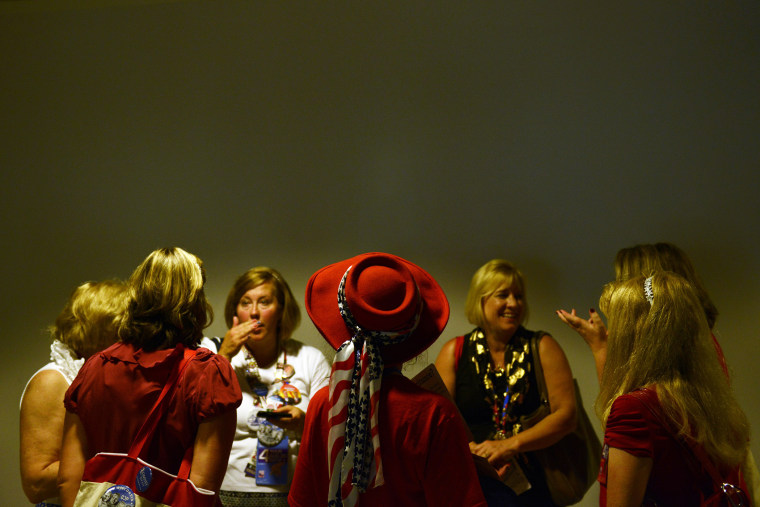As Republicans seek to recruit women’s votes ahead of November’s elections, members of the party are launching a new political action committee to try and do just that.
The PAC, Unlocking Potential Project, will be run by Carly Fiorina, a former Senate candidate and the chairwoman of the American Conservative Union Foundation, the Washington Post reports.
The PAC will work to “develop and shape messaging on a wide range of issues that directly relate to independent female voters,” a background memo obtained by the paper detailed.
By the numbers, targeting women voters makes sense for the party—in 2012, more women voted and they voted largely for the president. Single women, in particular, gave the president a 36-point victory over Republican nominee Mitt Romney.
Within the party, they have made it a key 2014 goal to try and close the gender gap by researching talking points on how to better relate to women and launching a grassroots effort to mobilize young, suburban women on the party’s behalf to attract more female votes.
“Republicans recognize the need to win a greater share of women’s votes,” Republican National Committee spokeswoman Kirsten Kukowski told msnbc earlier this month. She argued that one of their big focuses is to counteract the Democrats' narrative that the GOP is waging a war on women.
The PAC’s plan looks similar to the party's: they’ll recruit women to try and recruit other women, particularly in key states like Colorado, Iowa, Michigan, New Hampshire, North Carolina, and Virginia, and attempt to better target their messages to the right people through data mining, the Post adds.
Still, the party’s gender gap amongst voters is just one part of their problem with women: there’s a marked dearth of conservative women within the elected party. Indeed, the party has added just a handful of Republican women to their numbers over the last 30 years.
